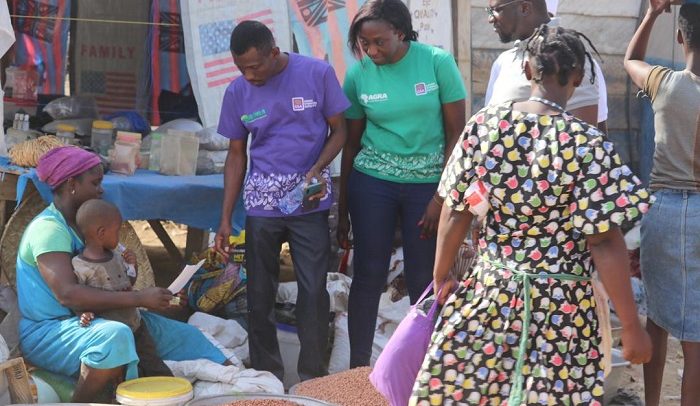The Ghana Standards Authority (GSA), as part of efforts to protect public health and facilitate trade, has visited the Oti Region to educate the general public on its mandate.
The visit took the GSA team to markets in Dambai, the Oti regional capital, and farming communities in the Krachi East District of the Region.
Staff educated the traders on issues ranging from the importance of calibrated scales in trading activities, the use of standards in farming, among several others.
The team advised the traders in the market that using calibrated scales would not only ensure that customers were not cheated but would also in turn help them to get good returns on items sold.
“Calibrated scales will ensure that customers get value for money since they get items worth exactly the amount they are buying,” Ruth Alando, a Business Development officer at the GSA explained.
During the community visits, farmers were educated on the dangers and management of aflatoxins in grains and other food commodities. The training also highlighted the importance of standards in farming activities.
Mrs. Araba Incoom, a Scientific Officer at the Histamine and Mycotoxins Laboratory at the GSA, bemoaned how cereals and grains from Ghana were being rejected by the European Union (EU) due to high levels of aflatoxins.
“Grains from Ghana are being rejected due to high levels of Aflatoxin contamination,” she disclosed.
“These Aflatoxins found in our grains can be reduced if we adhere to standards,” she added.
The GSA in collaboration with Ministry of food and Agriculture (MOFA) with support from the Alliance for a Green Revolution in Africa (AGRA) is embarking on a National Aflatoxin Sensitisation and Management (NASAM) project in the Oti and Volta Regions to educate Agric Extension Officers, Farmers, Traders and the general public on standards and the dangers and management of aflatoxins in grains.
BY Melvin Tarlue


